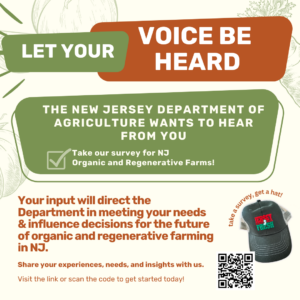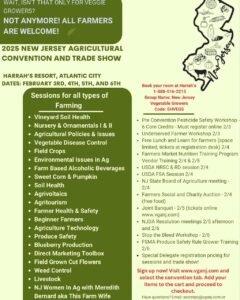The first stakeholder seminar for the Extension Specialist in Farm Viability position, originally scheduled for Monday (2/10), has been cancelled. See below for details on the next candidate seminars scheduled for 2/17 and 2/26.
These seminars will take place at the Middlesex County E.A.R.T.H. Center located at 42 Riva Ave, North Brunswick Township, NJ 08902 from 7:00-8:00 p.m. on the following dates. We welcome you to attend in person, but a Zoom option is available. Email kbrown@njaes.rutgers.edu for Zoom attendance troubleshooting. [Read more…]

 A Stop
A Stop 

